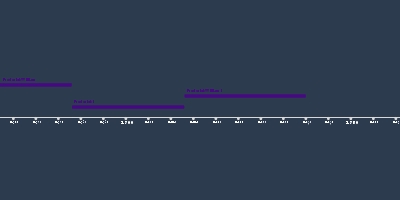The Unification of Italy (1 Jan 1848 Jahr – 1 Jan 1871 Jahr)
Beschreibung:
Italy, which had never been a unified state, experienced increased desire for unification, called the Risorgimento. The Congress of Vienna established Italy as a jumble of independent states, with Milan and Venice under Austria. Some, like patriotic writer Giuseppe Mazzaini, argued that the shared language, historic traditions, and divine purpose was cause for national unification. Others, like Pope Pius IX, denounced the idea as well as things like rationalism, socialism, separation of church and state, and religious liberty.Many looked to Victor Emmanuel II, king of Sardinia-Piedmont, for leadership. He led one of the most industrialized, wealthy, and socially advanced Italian territories and maintained a constitution that combined a strong monarchy with fair degrees of civil liberties and a parliamentary government (though election of this was limited).
Camillo Benso di Cavour, prime minister of the region, supported Emmanuel II and gained support by increasing infrastructure, expanding liberties, and opposing clerical privilege. He figured Sardinia-Piedmont could not drive out Austria without support, and allied with Napoleon III.
Cavour goaded Austria into attacking Piedmont. After Italian victories with the help of France, Napoleon backed out, worried by criticism for supporting the pope’s enemy. In a compromise, Sardinia-Piedmont was only granted Lombardy. However, these actions encouraged revolts in central Italy and increased support for the movement. Cavour regained French support by ceding Savoy and Nice to them. The people of central Italy voted to join a larger kingdom under Emmanuel.
Giuseppe Garibaldi emerged as an independent force in Italian politics. Partly to use him and partly to get rid of him, Cavour secretly supported his plan to liberate the Kingdom of Two Sicilies. Garibaldi led a successful, and violent, rebellion but was intercepted by Cavour’s forces in the Papal States. However, Cavour feared Garibaldi’s radicalism and appeal and the implications of a potential attack on Rome, which would lead to war with France. Garibaldi did not oppose Cavour, and Garibaldi and Emmanuel II sealed their alliance.
The new Kingdom of Italy, which soon included Venice and Rome, was a parliamentary monarchy under Victor Emmanuel II. However, it experienced limited democracy and prosperity, and its divisions remained.
Zugefügt zum Band der Zeit:
Datum:
1 Jan 1848 Jahr
1 Jan 1871 Jahr
~ 23 years
